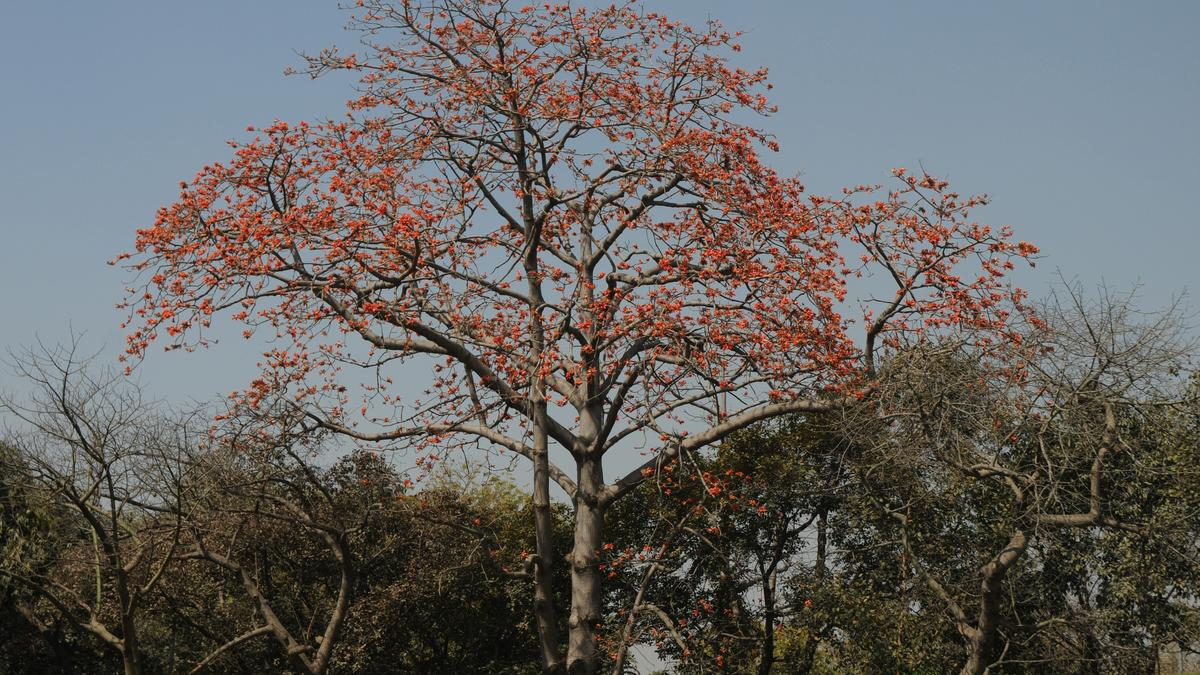Silk Cotton Tree Under Threat | 15 May 2024
Silk Cotton trees (Bombax ceiba L.) are under threat in Rajasthan due to overuse in tribal religious traditions, particularly in Holika-dahan rituals.
- It is also called Semal, or the Indian Kapok tree, or Shalmali in Sanskrit.
- Tribals see the act of burning as a virtuous ritual by mythological Holika and Prahlad.
- In 2009, around 1,500-2,000 trees were cut, debarked, and ignited during Holi in the Udaipur district in that year.
- It is mainly found in moist deciduous and semi-evergreen forests, also in the plains.
- In India, this species is commonly found in Andaman & Nicobar Island, Assam, Bihar, Kerala, Madhya Pradesh, Maharashtra, Odisha, Punjab, Rajasthan, and Uttar Pradesh.
- This tree is of high medicinal value; its roots and flowers are used for their stimulating, astringent and hemostatic properties, as an aphrodisiac, to stop diarrhoea, strengthen the heart, induce vomiting, soothe inflammation, treat dysentery, and lower fever.
- It also has antibacterial and antiviral properties, provides pain relief, protects the liver, acts as antioxidants, and lowers blood sugar levels.
- It is also used in agroforestry for livestock feed. The wood is strong, elastic and durable for ship building.
- The Kathodi tribe of Rajasthan uses wood for musical instruments such as the Dholak and Tambura and the Bhils use it to make kitchen spoons.

